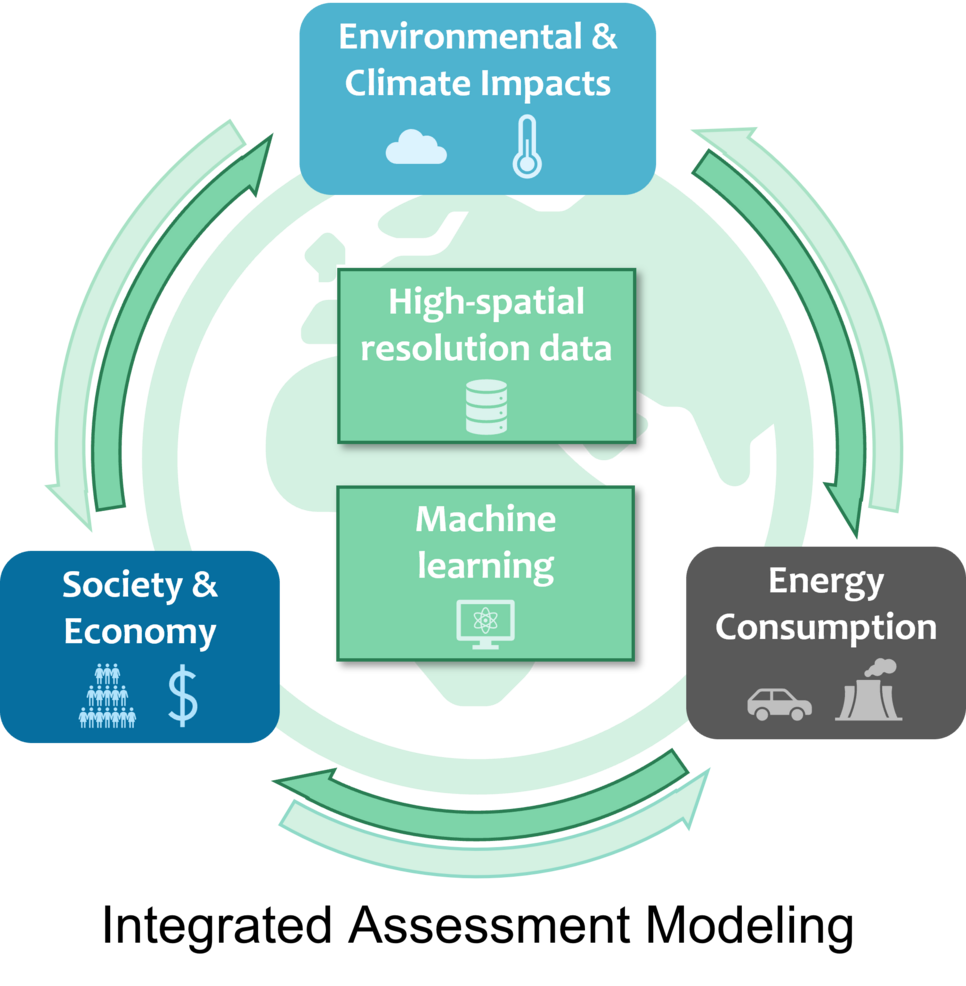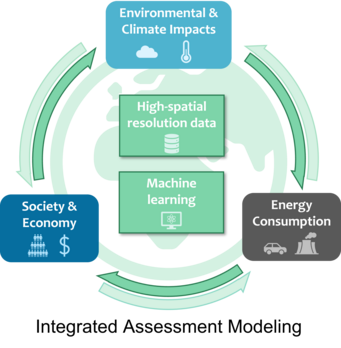Integrated Assessment Modeling

Dr. Wenjun Meng, Project Team Leader
Research Focus
Climate change is one of the most pressing global challenges of our time, driving extreme weather events and exacerbating socio-economic inequalities. Effective climate policies are essential to mitigate these risks, yet the interconnected nature of global systems means that reducing greenhouse gas (GHG) emissions in one sector can trigger cascading effects throughout economies, supply chains, and ecosystems. Understanding these interactions requires a multidisciplinary approach, incorporating climate science, atmospheric and aerosol research, and economic modeling to capture the complex feedback loops between human activities and environmental impacts.
We focus on developing an advanced integrated assessment modeling framework that links socio-economic, environmental, and technological factors. By incorporating machine learning techniques and improving spatial resolution, we aim to build a dynamic and flexible framework for evaluating climate and energy policies.
Significance
The development of this advanced integrated assessment modeling framework will significantly enhance our ability to:
- Improve analysis of the socio-economic and environmental impacts of climate policies.
- Assess the feasibility and effectiveness of different decarbonization pathways across diverse regions.
- Support sustainable development goals (SDGs) by informing policy decisions with robust, science-based insights.
By integrating cutting-edge machine learning techniques with a integrated modeling framework, we will help bridge critical knowledge gaps in climate policy analysis, ultimately contributing to a more sustainable and resilient future.
